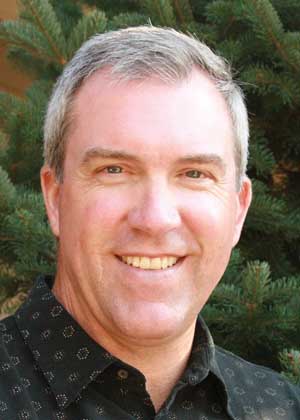—by Todd Fryhover, Washington Apple Commission
As apple harvest began this year, over 17 million bushels of 2023 Washington apples remain to be sold. To say the 2023 Washington apple crop was challenging is a monumental understatement. Conversations of late with growers highlight the difficulties surrounding increasing labor costs: the highest minimum wage in the U.S; the second highest Adverse Effect Wage Rate; and dependence upon an antiquated foreign worker program fraught with a lack of flexibility and too much bureaucracy that make it extremely costly. Combine all of that with decreasing per capita consumption, increasing competition in the produce aisle and no improvement of international trade opportunities, and it makes 2023 a candidate for the worst year in the past 20.

I don’t know about you, but I sat through too many economic classes in college as my professor drilled into my head that supply and demand equilibrium makes markets perform at their optimum for the benefit of the consumer and supplier. Clearly in 2023, supply exceeded demand, grower returns suffered and nobody but the retailer benefited. Everyone agrees the apple industry can’t keep doing the same thing repeatedly and expect a different result, so what options exist?
Oversupply and decreasing per capita consumption lie at the intersection of issues requiring action. This is, of course, an oversimplification. Many factors contribute to our industry’s success or failure, but we can only act on issues within our control.
Decreasing supply is easy, provided it’s your neighbor cutting down their trees. “I’ll even provide the chainsaw,” a grower recently commented. The supply side clearly indicates there are too many apples and too many apple varieties at retail, confusing consumers with the multitude of choices and the lack of education. With our high input costs, coupled with decreasing trade opportunities as globalization becomes politicized, we should concentrate our demand-building strategies where we have some control: the home court (Mexico, Canada, U.S.).
Increasing demand is an investment. It takes time and a herculean community effort — through collective support, coordinated activities, positive messaging and funding — to convince consumers to repeat purchases. Our philosophy on industrywide promotion has been contentious for decades, and we can certainly argue past performance as a reason to stay the course. But when all else fails, and nothing changes, it’s time to think outside the box and try something different — maybe not necessarily something new.
Consolidation continues. Outside capital now owns and operates thousands of acres of Washington orchards, and many individual growers feel forced to expand or sell out. My heart weighs heavy as orchard families are the victims of oversupply and decreasing per capita demand, but it’s consolidation that can implement change and address the bigger issues that surround our current challenges.
Today, there are two demand-building concepts gaining traction as possible pathways to improve demand for the benefit of the apple category and its growers (see “Industry advocating Eat More Apples campaign” and “A healthy choice for Washington apples”). I’m not advocating for either, but I am pointing out that smart people are willing to discuss new options when doing the same thing repeatedly hasn’t worked. Imperfections will exist in both concepts, but it’s a starting point for a collective industry voice, much like the one that first came to fruition in 1937 when another group of growers saw the benefits of banding together and attempting to build demand. This isn’t a new concept, but we can learn from the past with hopes of addressing the challenges of today.
For 18 years, I’ve been blessed to represent a world-class industry in a very crowded and competitive international marketplace. Our goal has always been to be good stewards of Washington apple growers’ financial resources, to implement programs that support the expansion of apple exports, and to leverage grower funds to capture federal funding and execute 25 international programs. I believe we have been successful. Today, I take this opportunity to thank you for this opportunity and encourage an open mind to new methods to address our collective challenges. Good luck, I will be watching.
Todd Fryhover served as the president of the Washington Apple Commission for 18 years. He retires this month.
Schadler getting to know the industry

New Washington Apple Commission President Michael Schadler started on the job in mid-September, but he began his efforts to get to know the apple industry before that, attending the USApple Outlook conference in August.
“I’m looking forward to continuing to learn,” he said. “It’s going to be drinking out of a fire hose, learning how the industry works and what the challenges are and what the opportunities are.”
Schadler joins the commission after a role as the executive vice president of the Florida Tomato Exchange and as manager of the Florida Tomato Committee. Previously, he worked in international marketing for the Florida Department of Citrus.
Between the two commodities, Schadler has experience in both the domestic and export markets. While he plans to continue the good work he said the commission is already doing internationally, he is also interested to see what path, if any, the Washington apple industry decides to take toward domestic marketing.
“It’s a huge opportunity,” he said. “Apples are going through a challenging cycle, and there are two ways to deal with that — increasing the demand or decreasing the supply. Hopefully it’s more the former than the latter.”
—by Kate Prengaman






Leave A Comment